第17章 CHAPTER XIII.(1)
"All of us, men and women, are brought up in these aberrations of feeling that we call love. I from childhood had prepared myself for this thing, and I loved, and I loved during all my youth, and I was joyous in loving. It had been put into my head that it was the noblest and highest occupation in the world. But when this expected feeling came at last, and I, a man, abandoned myself to it, the lie was pierced through and through.
Theoretically a lofty love is conceivable; practically it is an ignoble and degrading thing, which it is equally disgusting to talk about and to remember. It is not in vain that nature has made ceremonies, but people pretend that the ignoble and the shameful is beautiful and lofty.
"I will tell you brutally and briefly what were the first signs of my love. I abandoned myself to beastly excesses, not only not ashamed of them, but proud of them, giving no thought to the intellectual life of my wife. And not only did I not think of her intellectual life, I did not even consider her physical life.
I was astonished at the origin of our hostility, and yet how clear it was! This hostility is nothing but a protest of human nature against the beast that enslaves it. It could not be otherwise. This hatred was the hatred of accomplices in a crime.
Was it not a crime that, this poor woman having become pregnant in the first month, our liaison should have continued just the same?
"You imagine that I am wandering from my story. Not at all. Iam always giving you an account of the events that led to the murder of my wife. The imbeciles! They think that I killed my wife on the 5th of October. It was long before that that Iimmolated her, just as they all kill now. Understand well that in our society there is an idea shared by all that woman procures man pleasure (and vice versa, probably, but I know nothing of that, I only know my own case). Wein, Weiber und Gesang. So say the poets in their verses: Wine, women, and song!
"If it were only that! Take all the poetry, the painting, the sculpture, beginning with Pouschkine's 'Little Feet,' with 'Venus and Phryne,' and you will see that woman is only a means of enjoyment. That is what she is at Trouba,* at Gratchevka, and in a court ball-room. And think of this diabolical trick: if she were a thing without moral value, it might be said that woman is a fine morsel; but, in the first place, these knights assure us that they adore woman (they adore her and look upon her, however, as a means of enjoyment), then all assure us that they esteem woman. Some give up their seats to her, pick up her handkerchief; others recognize in her a right to fill all offices, participate in government, etc., but, in spite of all that, the essential point remains the same. She is, she remains, an object of sensual desire, and she knows it. It is slavery, for slavery is nothing else than the utilization of the labor of some for the enjoyment of others. That slavery may not exist people must refuse to enjoy the labor of others, and look upon it as a shameful act and as a sin.
*A suburb of Moscow.
"Actually, this is what happens. They abolish the external form, they suppress the formal sales of slaves, and then they imagine and assure others that slavery is abolished. They are unwilling to see that it still exists, since people, as before, like to profit by the labor of others, and think it good and just. This being given, there will always be found beings stronger or more cunning than others to profit thereby. The same thing happens in the emancipation of woman. At bottom feminine servitude consists entirely in her assimilation with a means of pleasure. They excite woman, they give her all sorts of rights equal to those of men, but they continue to look upon her as an object of sensual desire, and thus they bring her up from infancy and in public opinion.